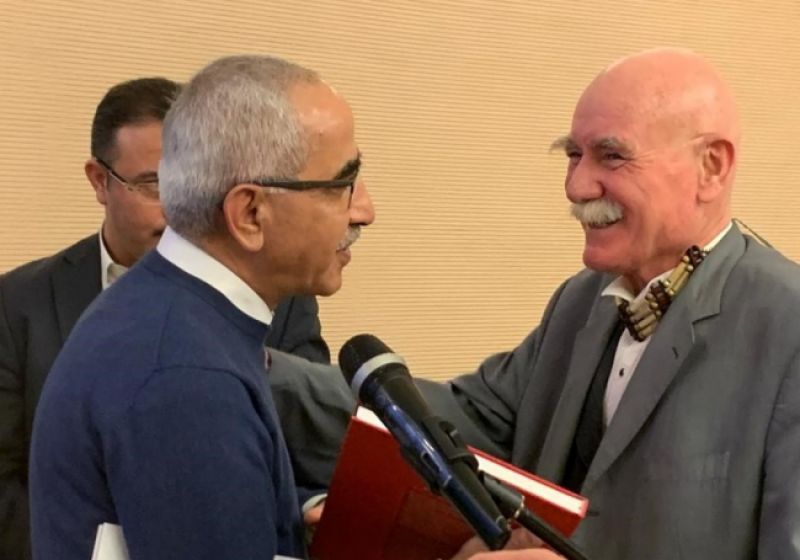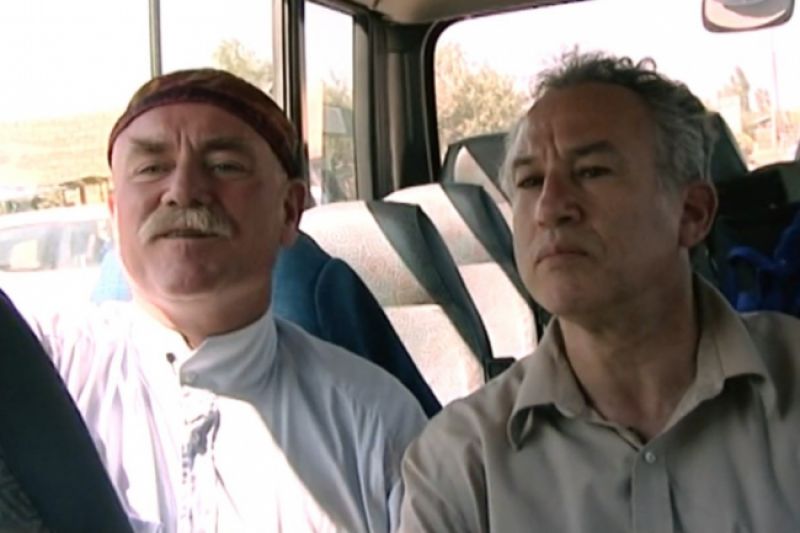
Guivami Rahimli, PhD, Senior Government Affairs Advisor for bp AGT Region, shared with Turan the memories about Thomas Goltz, a war journalist who passed away on July 29, 2023.
Thomas rose to prominence with his unique first-hand reports from conflict zones. I greatly treasure the memories about my good old friend whose loss hit me hard. Thomas was a master at slamming a declarative ball across the net, by word or deed, in ways that were never to be forgotten. Thomas is truly unforgettable for those who had the chance to know him.

When I discussed the memories about Thomas with another American friend, a renowned devotee of Azerbaijani mugham music Jeffrey Werbock, here is what Jeffrey sent me about our dear friend:
I met Thomas Goltz at a convention in Washington DC in 1997. Instantly I felt he was an extraordinary person; everything about him spoke of immediacy, honesty, loyalty, and driven by an inner fire yet to be named. Its name was Azerbaijan, the land of fire. Thomas went to Azerbaijan on the way to somewhere else and he felt what I felt, a magical pulse of energy that pervaded this society. Suddenly, I no longer felt alone in my infatuation with everything Azerbaijani. Here, was a fellow American, from North Dakota of all places, who knew; he knew what no one else seemed to know, that Azerbaijan was special, in more ways than we can count, but primarily it was the social consciousness. Thomas was drawn to it like a moth to a light. I was too, but I thought I had a perfect excuse; the intoxicating music known as mugham, and their magic carpets. What was Thomas doing in Azerbaijan, risking his life, dodging bullets, counting bodies, writing about the truth? To be with Thomas, was to be with the truth.
We did not always get along, we did not always agree what was important, how we should do what we do, advertise Azerbaijan in the English-speaking world. My approach was cultural/philosophical even maybe a touch mystical, whereas Thomas was a war correspondent. But we did agree on one thing; there is no place in the world like Azerbaijan. I once offered to edit a manuscript he was working on, what became ‘Georgian Diary’, the third in a trilogy that began with Azerbaijan, then Chechnya. He called me his “editor from hell” and wouldn’t talk to me for two years. But he did publish the book with all my editorial changes. He also introduced me to a friend of his named Tale Heydarov, a young Azerbaijani businessman who agreed to sponsor a film I wanted to make about the Azerbaijani refugee children who could sing mugham. We worked on that film for 8 years, and Thomas is in it; he was my traveling companion as the film crew took a bus to visit the camps in the villages not far from Karabakh, as there needed to be two English speakers talking about the enchanted land of Azerbaijan because the film was intended for the English-speaking audience. Thomas knew the area from his previous travels; he was indispensable to the success of that effort. I watched that film maybe 500 times, during the editing and screening, over and over again, and Thomas’ striking visage and voice are indelibly etched in my memory.
Years passed during which we collaborated on a few presentations at local universities in USA. Thomas was a forceful and effective speaker; a bit dramatic at times, evoking his past as a Shakespearean actor, calling attention to his unrelenting sense of urgency. He was right, of course, there was – and still remains – an urgency, as Azerbaijan has to swim upstream, so to speak, like a salmon, against a powerful current of negative propaganda about Azerbaijan, a current never questioned by my fellow Americans and others. Then along comes Thomas, a voice for truth, demanding a complete revision of what we were told, stories that we want to believe because they make us feel good; we imagine a victim of aggression and it turns out to be a disguise, like the wolf wearing a sheepskin. Thomas pulled the wool off and revealed the truth; he did it fearlessly and set an example for the rest of us.
It seemed like there were a few of us, who have taken the mission of being a voice for Azerbaijan and its culture. Then I met Mikael Silkeberg, a videographer from Sweden, who has been to Karabakh twice. He learned about my work promoting the culture of Azerbaijan and reached out to me. Now we are collaborating on making a documentary film about the liberation of Karabakh and Shusha, the legendary birthplace of mugham. After Mikael and I returned from our first trip to Karabakh, we thought to reach out to Thomas; perhaps he would agree to be in our film, as he was prominently featured in my first major documentary, “Young Voices, Ancient Song”.

I called Thomas; he said he was confined to a wheelchair, undergoing chemotherapy and too sick to travel, so I suggested that Mikael and I come to Livingston Montana, his latest abode. He must have thought that was funny, coughing out a sound that could have been intended to be a laugh. I said, Thomas, either we come to Montana, or you have to come to Karabakh, and we’ll film you there. Some months passed and I called him again to follow up on that thought. Thomas mused that he wanted to take a vacation and I asked where, and he said Veracruz. I practically yelled at him, like, what the heck, Mexico? You’re not going to Mexico, no way! If you go anywhere, you are going to Karabakh. I was in Shusha, Mikael was in Shusha, dozens, hundreds of people have gone to Shusha, and if anybody should be going to Shusha, it should be Thomas Goltz, if it’s the last thing you do!
Thomas Goltz went to Shusha, and indeed it was the last thing he did.
We’re alone now, without the shining, mustachioed face of Thomas Goltz to keep us company; I hope we can be as effective as he was, lover of Azerbaijan to the last breath.













Leave a review